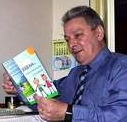 Music promoter Brian Douglas was arrested in Clapham in South
London not long after midnight on 3rd May 1995. During his arrest, he was
hit on the head by the recently issued American-style long handled baton.
The two police officers that arrested him claimed to have been acting in
self-defence because Mr Douglas had allegedly been carrying a CS gas
canister and a knife, an assertion contradicted by eye-witnesses who gave
evidence at the inquest. The officers also claimed that Mr Douglas had
been struck a blow on his upper arm, which slid over his shoulder and hit
his neck. These allegations were flatly contradicted by the expert medical
testimony of three pathologists who agreed that he had been struck on the
back of the head, which was consistent with accounts given by witnesses. Music promoter Brian Douglas was arrested in Clapham in South
London not long after midnight on 3rd May 1995. During his arrest, he was
hit on the head by the recently issued American-style long handled baton.
The two police officers that arrested him claimed to have been acting in
self-defence because Mr Douglas had allegedly been carrying a CS gas
canister and a knife, an assertion contradicted by eye-witnesses who gave
evidence at the inquest. The officers also claimed that Mr Douglas had
been struck a blow on his upper arm, which slid over his shoulder and hit
his neck. These allegations were flatly contradicted by the expert medical
testimony of three pathologists who agreed that he had been struck on the
back of the head, which was consistent with accounts given by witnesses.
The jury had also been told that despite vomiting in his cell, Mr
Douglas was not taken to hospital until more than 12 hours after he was
injured. However, they were unable to reach a verdict of unlawful killing
and Brian Douglas’ death is officially as a result of
‘misadventure,’ although the Coroner stressed the need for better
training in the use of batons. The Metropolitan Police Commissioner was
asked to consent to disclosure of statements taken by the investigating
officers but refused on spurious grounds. No disciplinary action was taken
against either officer after a PCA supervised investigation and the Crown
Prosecution Service brought no charges. Given the surprising nature of the
verdict, another worrying aspect is that the jury was largely drawn from
Eltham, South London – the scene of the racist murder of Stephen
Lawrence
The suggestion that Brian Douglas was violent was made by alleging that
he had been carrying a knife and CS canister despite the eye-witnesses who
denied such claims. This incident highlights the usual stereotype of black
people as violent and/or drug dealers that have common currency with those
who have little or no contact with black communities. Brian Douglas’
brother Donald commented after his brother’s death:
I fear that the numbers killed in police custody over recent years
without redress may have helped to shape the attitude that informed those
officers when they brought down that baton on my brother’s skull’.
(Independent 21.08.96)
The overwhelming impression that families have expressed to INQUEST
in cases where police officers have restrained black men is that both
immediately after a death and in the subsequent investigations, there have
been attempts to trawl for any information to discredit the character of
black people that are killed, presumably to in some way justify the
police’s actions. For example, families have repeatedly complained about
being questioned, at the beginning of a PCA-supervised inquiry, about
personal details such as what the individual who died was like and so on.
Those we support quite rightly fail to see the relevance of such questions
in an examination of the behaviour of the police.
Despite the recommendations of the Macpherson Report, and assurances
that the Metropolitan Police’s attitudes have changed, the treatment of
the family of Roger
Sylvester, who died after being restrained by eight officers in
January 1999, show that little has been done to satisfy the relatives of
healthy young black men who have died following an encounter with the
police.
© INQUEST 1998,1999 Please credit INQUEST
when using this material for purposes of quotation or reproduction
Brian had a son, and abrother, Donald, and a sister, Brenda Weinberg.
His mother is Jasmine Elvie.
For a similar story, see Wayne Douglas
|
Help wanted!
We would welcome biographical details for this person.
Click to contribute
Please note that if you employ Spam Assassin, or similar email
blockers, then you must ensure that you can receive emails from
douglashistory.co.uk
|
|
|


